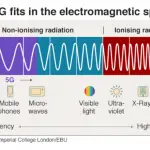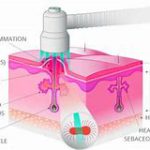Are you noticing your hair becoming thinner and weaker? Do you feel like it’s losing its natural shine and volume? If so, you may be wondering what is killing your hair. Hair loss can be caused by a variety of factors, including genetics, aging, and lifestyle choices. In this article, we’ll explore what is killing your hair, as well as some tips to help you get back your natural, healthy locks.

Contents
What is Killing My Hair?
Hormone Imbalances
Hormone imbalances can cause a wide range of hair loss symptoms, from thinning hair to complete baldness. Hormonal imbalances are often caused by an underlying medical condition, such as thyroid disease, or can be due to lifestyle factors, such as stress. Identifying the underlying cause of the hormonal imbalance is important for finding an effective treatment.
Hormone imbalances can affect both men and women, although women are more likely to experience hair loss due to hormonal changes associated with pregnancy, menopause, and other life events. Common hormonal imbalances that can cause hair loss include low testosterone, high testosterone, cortisol imbalances, and imbalances in thyroid hormones.
Low Testosterone
Low testosterone, also known as androgen deficiency, can cause hair loss in both men and women. Testosterone levels naturally decline with age, but can also be caused by underlying medical conditions, such as diabetes, obesity, or chronic stress. Low testosterone can cause hair loss on the scalp, face, chest, arms, and legs.
Testosterone levels can be tested at a doctor’s office, and treatments may include hormone replacement therapy, lifestyle changes, and medications.
High Testosterone
High testosterone levels can also cause hair loss in both men and women. High testosterone levels can be caused by underlying medical conditions, such as polycystic ovary syndrome (PCOS), or can be due to lifestyle factors, such as stress.
High testosterone levels can cause hair loss on the scalp, face, chest, arms, and legs. Treatment for high testosterone levels may include lifestyle changes, medications, or hormone replacement therapy.
Excessive Styling
Excessive styling is one of the most common causes of hair loss. Overstyling can cause physical damage to the hair, such as breakage and split ends, which can lead to thinning hair and eventual baldness.
Common styling methods that can cause hair loss include blow-drying, curling, straightening, and bleaching. These methods can cause the hair to become dry and brittle, leading to breakage and hair loss. Additionally, tight hairstyles, such as braids and ponytails, can cause traction alopecia, a form of hair loss caused by excessive pulling on the hair.
Preventing Hair Loss
The best way to prevent hair loss caused by excessive styling is to avoid overstyling. It is important to use heat protecting products when using heat styling tools, such as blow-dryers and curling irons. Additionally, it is important to use gentle styling techniques and to avoid tight hairstyles.
Treating Hair Loss
If hair loss has already occurred due to excessive styling, it is important to seek treatment as soon as possible. Treatment for hair loss due to overstyling may include medications, lifestyle changes, and hair transplantation.
Hereditary Hair Loss
Hereditary hair loss, also known as androgenetic alopecia, is the most common cause of hair loss in both men and women. Hereditary hair loss is caused by a combination of genetic factors and hormones. It typically begins in the late twenties or early thirties, and is characterized by thinning hair on the scalp, face, and/or body.
Treating Hereditary Hair Loss
Treatment for hereditary hair loss may include medications, lifestyle changes, and topical treatments. Medications such as Rogaine, Propecia, and Avodart can help slow the progression of hair loss, while lifestyle changes, such as stress reduction and a healthy diet, can help to reduce the effects of hereditary hair loss.
Preventing Hereditary Hair Loss
The best way to prevent hereditary hair loss is to maintain a healthy lifestyle. Eating a balanced diet, getting regular exercise, and reducing stress can help to reduce the effects of hereditary hair loss. Additionally, avoiding tight hairstyles, excessive styling, and chemical treatments can help to reduce the risk of hair loss.
Related Faq
What Causes Hair Loss?
Hair loss can be caused by a variety of factors, including genetics, hormonal imbalances, nutritional deficiencies, and certain medical conditions. Hair loss can also be caused by excessive styling, harsh treatments, environmental pollutants, and other lifestyle factors. Genetics plays a major role in determining how much and how quickly an individual will lose their hair. For example, male pattern baldness is most commonly caused by a genetic predisposition and is more common in some families than others. Hormonal imbalances, such as those associated with pregnancy, menopause, and certain medications can also cause hair thinning or shedding. Nutritional deficiencies, such as a lack of iron or protein, can also contribute to hair loss. Medical conditions, such as alopecia areata, thyroid disorders, and lupus can also cause hair loss.
What Lifestyle Factors Can Contribute to Hair Loss?
Lifestyle factors, such as excessive styling, harsh treatments, environmental pollutants, and other lifestyle factors can contribute to hair loss. Excessive styling, such as using too much heat, chemicals, or styling products, can damage the hair follicles and cause hair loss. Harsh treatments, such as tight braiding, pulling, or twisting, can also damage the hair follicles and cause hair loss. Environmental pollutants, such as smog, smoke, and dust, can clog the pores of the scalp and interfere with hair growth. Additionally, stress, poor nutrition, and lack of sleep can contribute to hair loss.
What Treatments Are Available for Hair Loss?
There are a variety of treatments available for hair loss, ranging from lifestyle changes to medical treatments. Lifestyle changes, such as reducing stress, eating a balanced diet, avoiding harsh treatments, and limiting exposure to environmental pollutants, can help to prevent further hair loss. Additionally, certain medications, such as minoxidil, finasteride, and spironolactone, can help to reduce hair thinning or shedding. Hair transplantation is another option for those with severe hair loss.
What Are the Symptoms of Hair Loss?
The most common symptom of hair loss is thinning or bald patches of hair. Other symptoms may include increased shedding, scalp tenderness, and itching. In some cases, hair loss may be accompanied by other signs and symptoms, such as fatigue, weight loss, or changes in skin color.
How Can I Prevent Hair Loss?
There are a few steps you can take to help prevent hair loss. First, reducing stress, eating a balanced diet, and avoiding harsh treatments can help to prevent further hair loss. Additionally, limiting exposure to environmental pollutants, such as smog, smoke, and dust, can also help to prevent hair loss. If you’re taking any medications that may be contributing to hair loss, talk to your doctor about other options.
What Should I Do if I Notice Hair Loss?
If you notice sudden or excessive hair loss, it’s important to speak with your doctor. Your doctor can assess your symptoms and determine if there is an underlying cause that needs to be addressed. If your doctor determines that a medical condition is causing your hair loss, they can refer you to a specialist for further evaluation and treatment. Additionally, they may be able to recommend lifestyle changes or medications that can help to slow or stop hair loss.
Relaxer is killing their hair !!! Hairdresser reacts to hair fails
The overall conclusion to what is killing your hair is that it could be a variety of things: from genetics to lifestyle habits, to underlying medical conditions. As a professional writer, I advise that you visit your dermatologist or physician to help you identify the underlying cause and to create a personalized plan of action tailored to your individual needs. The earlier you can identify the root cause, the earlier you can take proactive steps to address the problem. With the right treatment and lifestyle modifications, you can help restore your hair to its natural health and shine.




.jpg)
.jpg)


